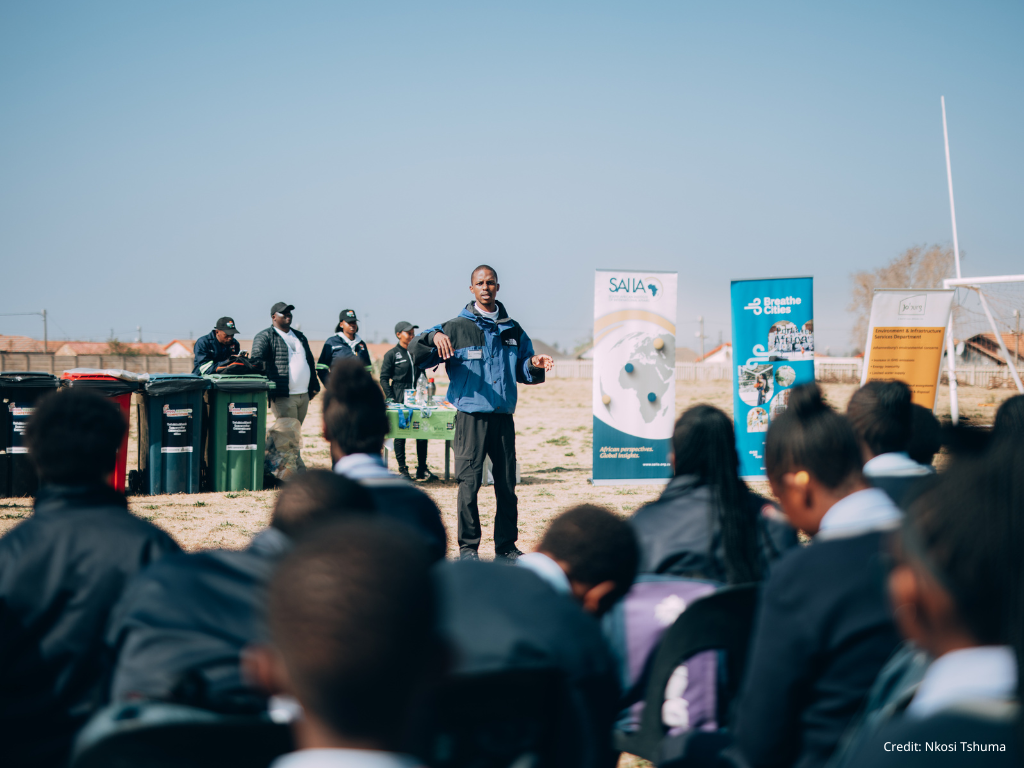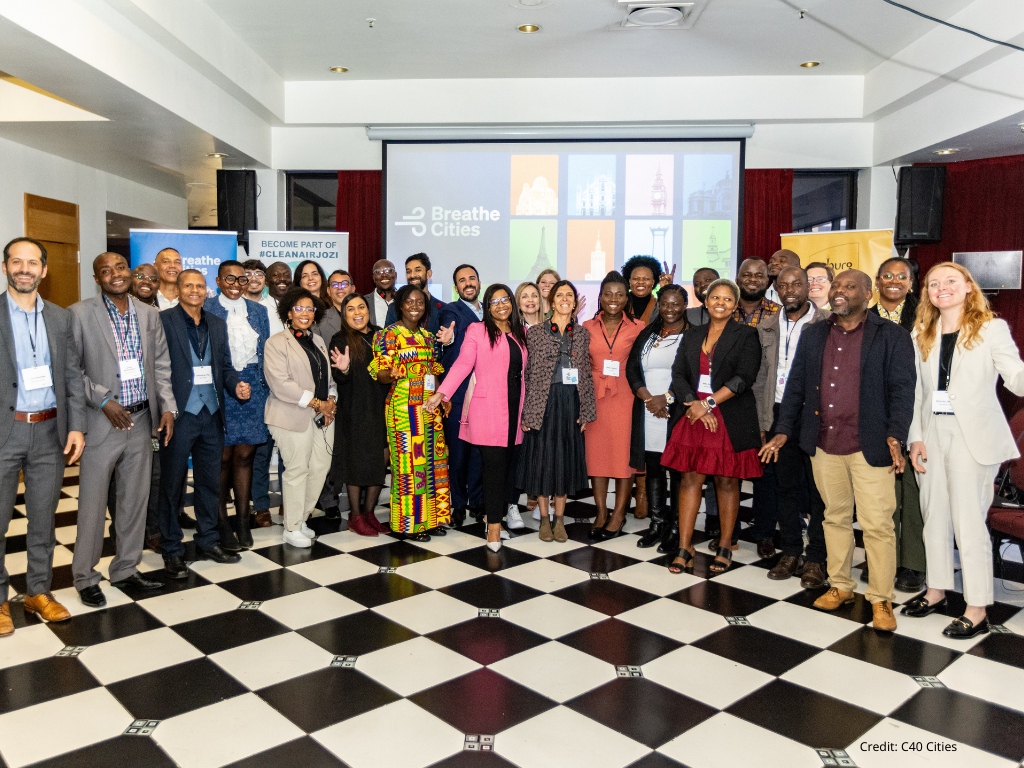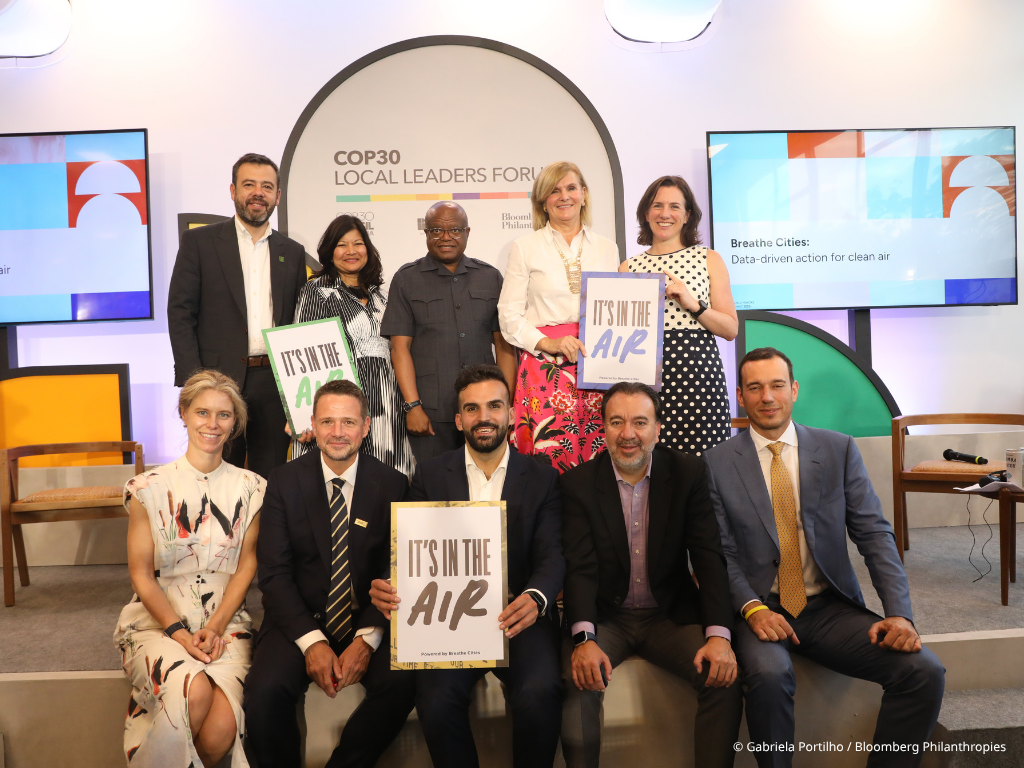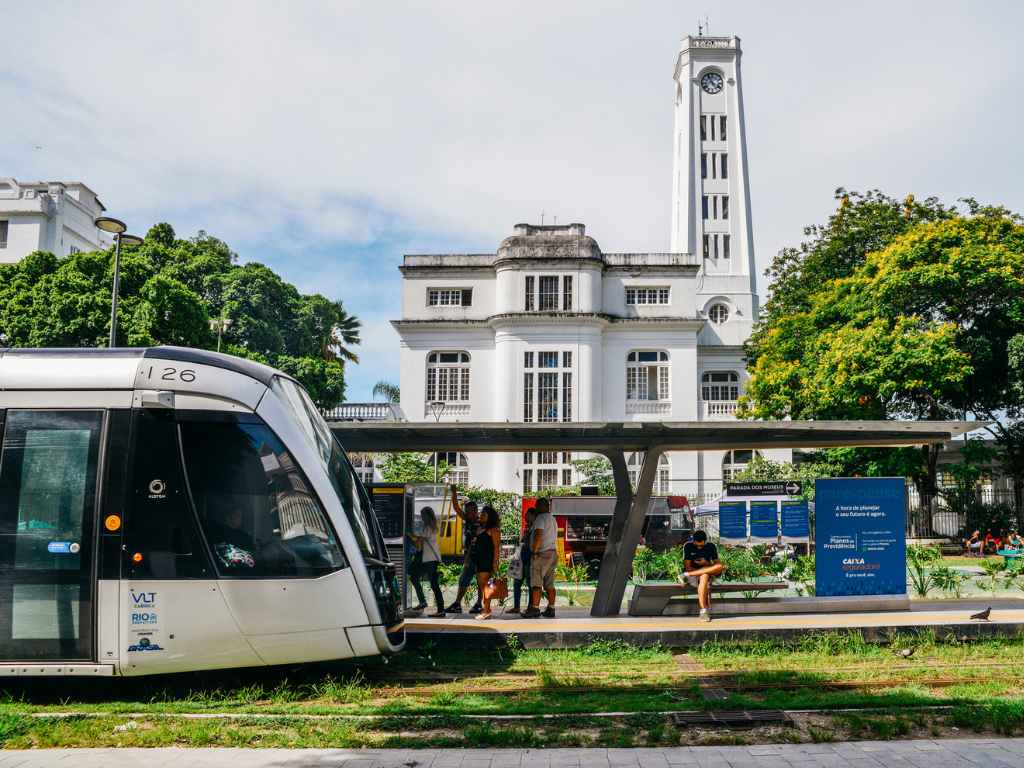Johannesburg
Johannesburg (known locally as ‘Jozi’) is a vibrant, cosmopolitan city and South Africa’s chief industrial and financial hub. With a population of 6 million and rising, it is projected to reach official megacity status by 2030. But as the city continues to grow, so do the challenges of managing air pollution. At COP28 in December 2023, Johannesburg was announced as a member of the Breathe Cities initiative to help reduce emissions, improve public health, and build a cleaner, healthier future for its residents.




Everyone should breathe clean air, and we are committed to tackling air pollution in Johannesburg to ensure our communities feel the benefits. Through our partnership with Breathe Cities, we’re engaged with youth-led campaigns and gathering data on the sources of air pollution to help make this a reality.
Dada Morero
Executive Mayor, City of Johannesburg

Air pollution in Johannesburg
Johannesburg consistently records some of the highest pollution levels in South Africa. In 2023, average concentrations of harmful particles (PM2.5) were ten times higher than what the World Health Organisation recommends. These levels tend to spike during winter, from May to August, when cooler temperatures and stagnant air keep pollution trapped close to the ground.
According to the city’s 2019 Air Quality Management Plan, the main sources of pollution within Johannesburg are domestic fuel burning, vehicles, and dust. Many households still rely on coal, wood, and paraffin for cooking and heating, releasing thick smoke and harmful particles into the air, while traffic emissions and dust from roads and construction add further pressure. Although large industrial plants and coal-fired power stations are not located inside the city, emissions from these regional facilities, along with pollution from mining tailings and neighbouring urban areas, drift into Johannesburg and worsen its air quality challenges.
The health impact of this pollution is significant. In 2019, air pollution was linked to around 5,300 premature deaths in Johannesburg. Those most affected are often people living in areas close to industrial activity or households that rely on polluting fuels for daily needs.

What we're doing in Johannesburg
The Breathe Cities initiative in Johannesburg seeks to expand data on air quality and its health impacts, support community organisations to advocate for clean air, and support the City of Johannesburg’s efforts to data-driven action. Together, we aim to reduce air pollution, protect health, and mobilise action across the city.
To strengthen the city’s evidence base, an air quality perception survey reached 3,000 residents and showed that while 92% of Joburgers are worried about air pollution, only 5% know what is being done to tackle it. These community insights are being paired with scientific studies, including South Africa’s first vehicle emissions assessment to identify which vehicles are most responsible for tailpipe pollution, and a detailed analysis mapping what pollutants are in the air and where they come from. A network of low-cost sensors has also been brought back online to generate real-time air-quality data. Crucially, this information is being made publicly available, not only to guide city decision-making, but also to give communities, researchers, and advocates open access to the evidence they need to push for change.
At the same time, Breathe Joburg is working with youth, schools, and community organisations to build awareness and drive collective action. Campaigns such as #CleanAirJozi and Air Aware are highlighting the health impacts of air pollution, fifty young people aged 13–25 have been trained as clean-air ambassadors to lead sessions in their schools and neighbourhoods, and 35 community-based organisations across all seven regions of Johannesburg are being supported to design and deliver local campaigns. By making data accessible and strengthening action both inside and outside of government, the initiative is ensuring that clean air in Johannesburg is not just a policy goal, but a shared movement.
In Johannesburg, we work with a range of partners and community groups in our efforts to clean the city’s air, including the South African Institute of International Affairs Youth, The International Council on Clean Transportation, University of Johannesburg Process, Energy & Environment Technology Station, Seriti Institute, Airshed Planning Institute, Air Resource Management and The Council for Scientific and Industrial Research.
Related Posts
-
 Blog05/12/2025Johannesburg
Blog05/12/2025JohannesburgHow Youth Action is Breathing New Life into Johannesburg
From classrooms to community halls, Johannesburg’s Youth Air Champions are turning knowledge into action, leading… -
 Blog20/08/2025Johannesburg
Blog20/08/2025Johannesburg5 Ways Cities Can Deliver Long-Term Clean Air Action
The City of Johannesburg hosted the second Breathe Cities Knowledge Workshop, uniting officials from 10… -
 Press Release04/11/2025Global
Press Release04/11/2025GlobalBreathe Cities Mayors Unite On Air Quality Action at COP30 Local Leaders Forum
COP30 Local Leaders Forum gives mayors from around the world the chance to share solutions… -
 Press Release15/11/2024Rio de Janeiro
Press Release15/11/2024Rio de JaneiroRio de Janeiro launches Breathe Cities initiative to tackle air pollution
Rio de Janeiro has launched the 'Breathe Rio de Janeiro' initiative to enhance air quality…



